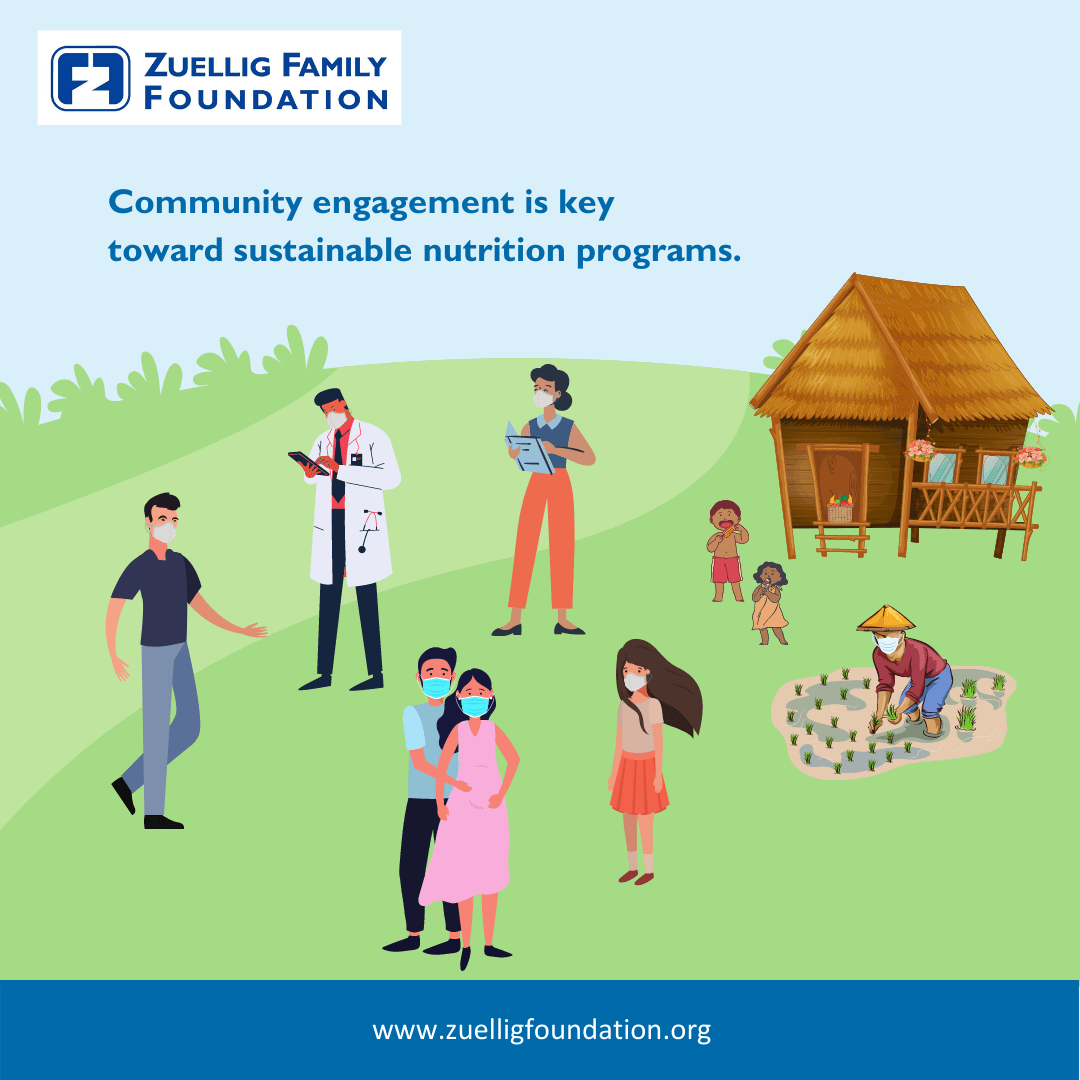Strengthened nutrition leadership and governance toward increased community engagement
Features | by ZFF Admin

With disrupted nutrition-related services amid the pandemic, the World Health Organization (WHO) is expecting an increase in the levels of malnutrition among vulnerable households. In the Philippines, one in every five children under two years old is stunted or too short for their age and 7 percent is wasted or too thin for their height, according to a 2019 Food and Nutrition Research Institute (FNRI) survey.
To effectively manage these numbers, studies have shown that community engagement plays an important role. Anchored on this, governors of Basilan and Sarangani are enhancing their capacities toward gaining increased support from the ground level through the Provincial Nutrition Governance Program (PNGP).
Designed based on positive results
A second partnership project of the Zuellig Family Foundation (ZFF) and Kristian Gerhard Jebsen Foundation, PNGP focuses on addressing nutrition problems in the crucial first 1,000 days (F1KD) of life—from conception up to two years of age. Stunting during this stage, in particular, may have is irreversible effects on the cognitive development and growth of children, according to WHO.
These efforts reduced the stunting rate among the municipalities’ 0 to 23-month-old children from 19 percent in 2017 to 15 percent in 2019, lower than the national rate of 21.9 percent, according to FNRI.
Community participation
Among the interventions, executive sessions titled “Nutrition Leadership and Governance: Instituting Change for Co-Ownership and Co-Creation” were held for Governors Jim Hataman-Sallimana (Basilan) and Steve Chiongbian Solon (Sarangani) on March 30 and April 15, respectively.
The sessions highlighted increasing community engagement by transforming into sensitive leaders who can understand the culture and behavior of the community. This will help the leader gain a deeper connection and shared responsibility of improving nutrition security, and eventually, having an integrated nutrition system toward a reduction in stunting and wasting among children.
This strategy includes strengthened leadership, improved messaging, and locally-tailored health and nutrition service design and delivery toward continuous ground-level support. This is especially important amid an increase in food insecurity due to food supply chain disruptions, interrupted market movement due to quarantine restrictions, and higher prices of nutritious foods during the pandemic.
Other tried and tested ZFF strategies in improving the numbers of nutritionally at-risk pregnant women, low birth weight infants, and stunted and wasted children, and ensuring the proper health of pregnant women and infants were also discussed.